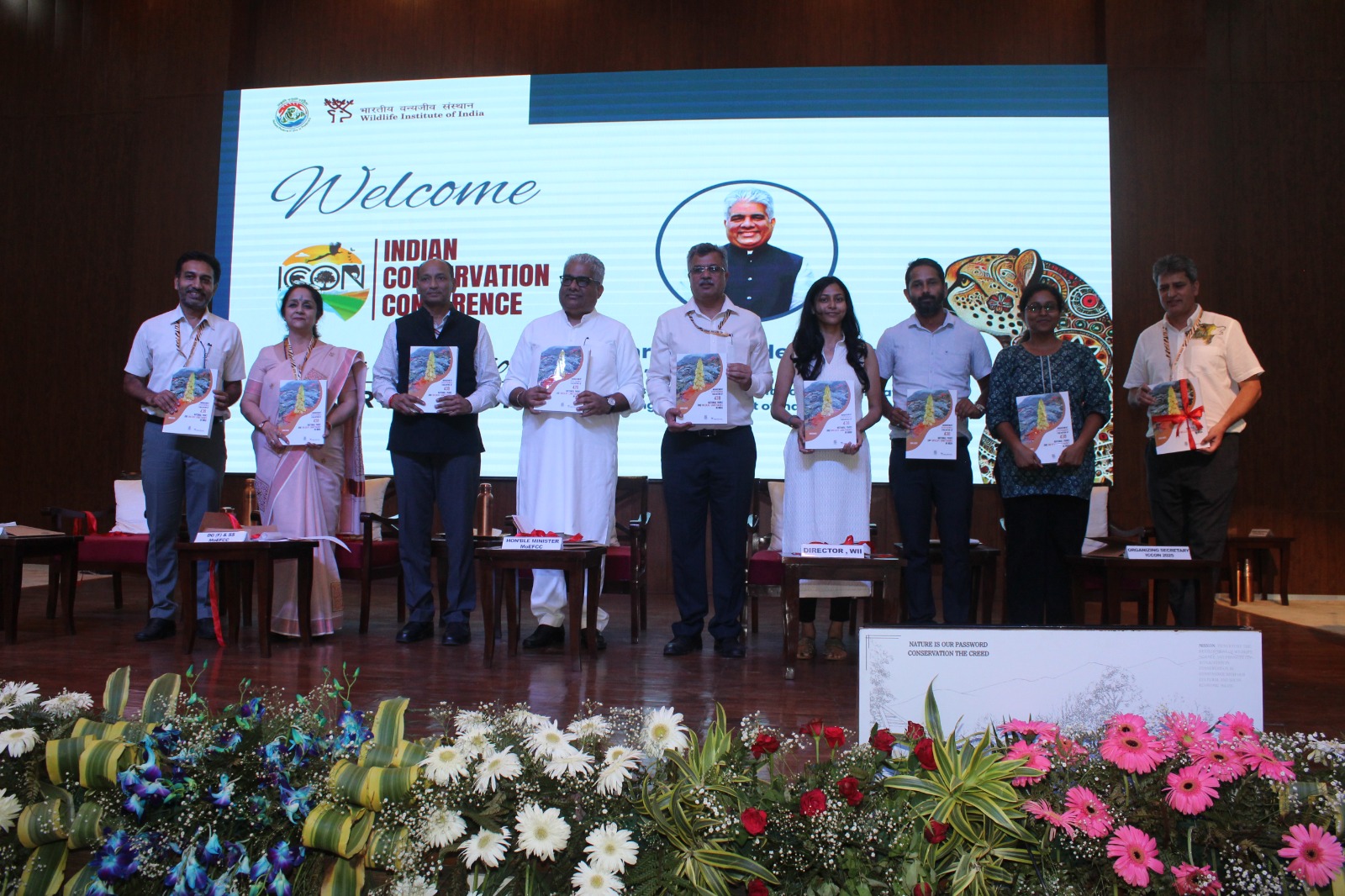The Indian Conservation Conference (ICCON 2025) was today inaugurated by Union Environment and Climate Change minister Sh Bhupender Yadav at Wildlife Institute of India, Dehradun. The conference began today and ends on 27th June. The conference brings together hundreds of students, researchers, forest officials, and conservation professionals from across the country and beyond.
The conference opened with a welcome briefing by Dr. Bilal Habib, Scientist F and Organising Secretary of ICCON 2025, who introduced participants to the three-day event’s objectives, key themes, and collaborative spirit. This was followed by the first plenary session, where Dr. Hema Somanathan, Professor at IISER Trivandrum, delivered an insightful talk on “Sensory and Cognitive Ecology of Bees.” Her presentation shed light on how bees see, learn, and forage — crucial behaviours for pollination, biodiversity, and food security.
Addressing the conference Union minister Sh Bhupender Yadav said that India’s leadership in biodiversity conservation today is both national and global. From the launch of the International Big Cat Alliance to our contributions at COP28, we are proving that ecological responsibility can walk hand in hand with economic progress. He added that Initiatives like MISHTI, Amrit Dharohar, and the Green Credit Programme reflect our commitment to a development model rooted in tradition, technology, and trust in communities.
Sh Yadav said that as we move toward Viksit Bharat 2047, platforms like ICCON are essential because they bring together the next generation of researchers, forest officers, and conservationists to rethink solutions. Sh Yadav urged young minds to look beyond conventional answers — to bring science, technology, and empathy into the heart of conservation. He said that Youths’ ideas will shape how India — and the world — learns to coexist with wildlife.
Union minister said that under the leadership of Prime Minister Sh Narender Modi government is committed to conserve wildlife and various measures have been taken for this. Sh Yadav said that in 2014 India had 47 tiger reserves and now in 2024 we have 58 tiger reserves, which means one tiger reserve has been added per year in last 11 years. Likewise India had 25 Ramsar wetland sites in India which has gone upto 91 sites in 2024. All such developments shows government’s commitment in environment and wildlife conservation. He said while addressing the conference that government is also working to conserve wetlands, dolphins, elephants, tigers, sloth bears.
Talking about human wildlife conflict Sh Yadav showed concern of a new type of conflict called tiger outside tiger reserve. He said government is working to solve this concern. In his concluding statement Sh Yadav emphassied for documentation of traditional knowledge in the field of conservation and environment and use them scientifically is needed today.
Shri Sushil Kumar Awasthi, IFS, Director General of Forests & Special Secretary, MoEFCC in his address said that ICCON reflects the Ministry’s commitment to advancing conservation through evidence, inclusion, and institutional strength. Shri Virendra Tiwari, Director, Wildlife Institute of India
In his address said that ICCON is not just a conference — it is a reflection of India’s evolving conservation ethos, where science, policy, and grassroots wisdom come together. At the Wildlife Institute of India, we see this platform as a bridge — connecting generations, disciplines, and geographies. Dr. Ruchi Badola, Dean, Wildlife Institute of India played vital role in ICCON.
